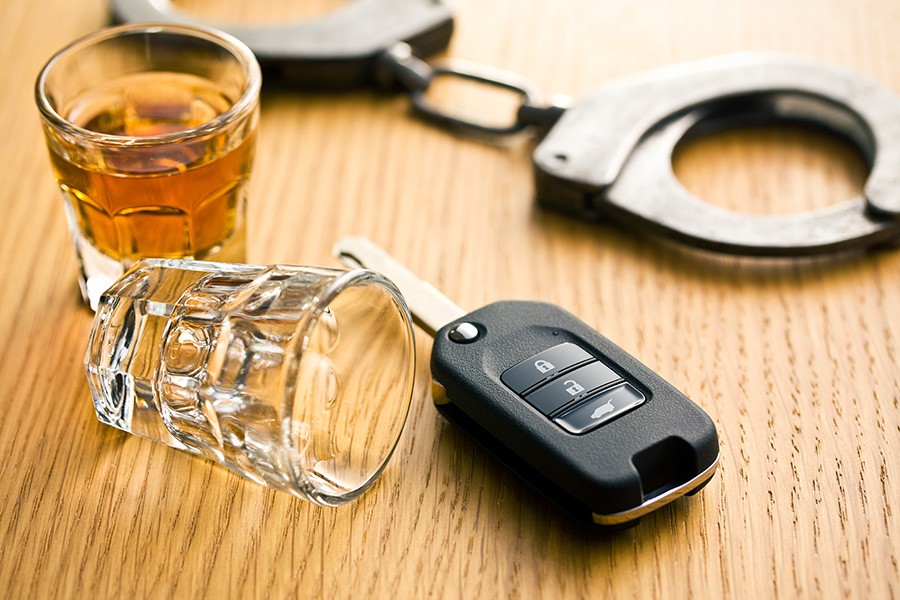Drunk Driving Accidents In Arizona: What You Should Know

There’s been a lot of attention put on distracted drivers in recent years, and in some cases, it has taken away from a problem that has existed for a long time, long before cell phones were commonplace. Drunk driving. As a nation, the U.S. has a serious issue in drinking and driving. According to the Center for Disease Control, about a third of traffic fatalities involve a drunk driver in some way. Clearly, we can’t let ourselves be distracted from the issue of drinking and driving, it’s an important issue for both the person who is charged with a DUI, as well as anyone injured or affected by an impaired driver.
What Does It Take To Drive Impaired?
It is easy to be horrified by drunk driving accidents, but there are many who get behind the wheel after drinking more often than they like to admit. In Arizona, and across the country, the legal limit for blood alcohol content is .08 percent, or if the person is driving with a commercial license it is .04 percent. If the driver is under 21, any amount of alcohol in their system will make them vulnerable to being charged with a DUI. Technically, any amount of alcohol can compromise a person’s ability to operate a motor vehicle safely, regardless of how well they think they can “hold their liquor” or how good of a driver they might be.
In Arizona, drunk driving accidents happen slightly more often than the national average, however, fewer people report that they have driven after drinking too much. Between 2003-2012 over 2900 people were killed in Arizona drunk driver-related crashes.
There are many calculators that attempt to show people how much they can safely drink and stay below the legal limit. These are calculated by considering factors such as gender, weight, and food consumption along with the amount and type of alcohol consumed and rate of consumption. Women normally metabolize alcohol slower than men, because biologically, they have fewer enzymes to break it down. Weight is not created equal either. Someone who is heavier due to a greater amount of muscle will metabolize faster than someone of similar weight, but a higher percentage of body fat.
Who Gets DUIs?
Despite the fact that women are more vulnerable to having their BAC rise over the legal limit, there are significantly more males being charged with drunk driving, accounting for almost 70% of drivers involving alcohol. Women get DUIs too, of course, and may need to be even more careful because alcohol metabolism is harder to pin down.
What a DUI Means
The state of Arizona is not shy about charging and fining for a DUI. Even on a first offense, a person found driving with a BAC over .08 can be put in jail for 10 days and fined over $1200. This goes up to 90 days and $3000 if it is a second offense. Penalties climb further id BAC is measured above .15 percent. Monitoring after a conviction ranges from having your vehicle fitted with an ignition interlock device to the loss of the driver’s license. Jail time, education and treatment, and community service may all be required as well.
If You Are Stopped for a DUI
The first person to make a guess as to whether a person is suspected of a DUI is a police officer. In most cases, the officer will notice that driving skills are impaired in one of several ways, such as by going too fast, weaving on the road, or improperly obeying traffic signals. They may also come onto the scene of an accident and see someone who appears to be intoxicated, without witnessing that person actually being behind the wheel.
If an officer thinks you look intoxicated, they will often attempt further investigation, which normally involves field sobriety tests. A person who finds themselves in this type of situation should always be courteous, but they can ask to speak to an attorney in private. Often, officers will ask to perform a field sobriety test, but the results are highly subjective and can be easily failed even if the person has not been drinking, simply because of lack of coordination or from being nervous over being stopped. It is okay to refuse a field sobriety test, but in most cases, you should cooperate with a blood test. When the BAC blood test is confirmed, if it is over the legal limit the person will be informed of any legal action against them.
If you are Injured, or if a Loved One is Killed by A Drunk Driver
If you or a loved one is on the other side of a drunk driving accident and are injured or killed, it is important to work with an attorney of your own. Do not assume that the criminal justice system will take care of you. Legal ramifications for drunk driving and civil action are two separate things.
At Petersen Johnson in Phoenix, we stand up for victims of traffic accidents and have done so for over 20 years. Whether a person’s drinking and driving has led to a personal injury, or you need to pursue a wrongful death suit, we can often help our clients get compensation for their injuries or loss, even if the driver somehow escaped criminal charges. We also cooperate with police with our own investigation and may help justice be served there as well. Contact us at 602-910-4223 to schedule a free case evaluation.
